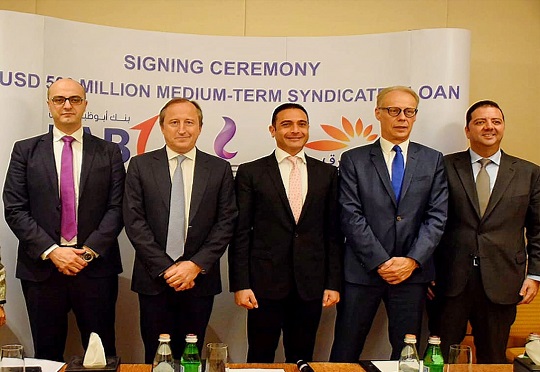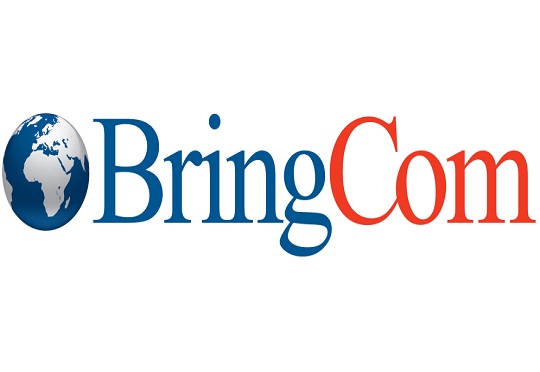By Abednego Waliki
Aside from the roles that citizens play in attaining and maintaining a remarkable developmental stride, one other aspect that will bring to the actualization of a sustainable path towards the transformation of the African continent, is in the leadership structure and management. Hence, the place that leadership plays in bringing to bear, a long awaiting development in all ramifications in Africa, cannot be overemphasized.
The yearning towards a state of an all-round development and transformation in the African continent has been a long overdue issue. To this, is the aspect where leadership comes in: “leadership is undoubtedly a privilege and a huge responsibility: as people aspire to be leaders, we often think of the glamorous public appearances, the power and the prestige; less is thought of basic issues that confront us all as human beings” (Gwamaka Kifukwe, 2017). As such, less consideration is given, as to how one can effectively serve towards bringing an all-around developmental transformation that will further develop African states. Peter Thomson (2016) once stated that “It is not just enough to just wish there was adequate public finance, or to wonder why the large amounts of private finance seem so hard to persuade to invest in the right things”.
Thus, as a way towards financing Africa’s developmental goals, I will in this article discuss; societal peace, governmental peace, economic strive and domestic resource value chain, standardization of educational institutions, judicial strength, and diplomatic relations, as the basic necessity towards curbing problems of violence and terrorism, lack of governmental will, less value chain of domesticated resources, high tax rate, non-standardization of learning institutions, judicial loopholes, and the non-existent structures for research and information management, which has deterred the growth in Africa’s developments and transformational strides.
The peaceful state of any society is the basic necessity towards whatsoever form of developments and transformation we could ever think of. “…the absence of peace and security does not allow governments to focus on meeting pressing development needs, which continues to leave Africa poor in many respects” (Victor N. Azure, (2017); and this can be seen from the destruction of life and properties which the activities of the Bokoharam Islamic sect have caused in the North Eastern part of Nigeria. Ensuring peace will create the right avenue to appropriately and effectively finance Africa’s developments and transformation. Thus, the peaceful state of the society should be prioritized. This should include: enhancing inter-religious harmony and socio-ethnic coexistence, mitigating border clashes, improving upon the social development and many more. The achievement of this societal peace would be achievable through effective security strategies and community dialogue forums.
Governmental peace is to an extent, the aspect that determines the degree to which the other state of transformations can be based on. The necessary inputs that are needed in order to have the necessary form up, that would help finance the developments and transformations which encompasses; sure commitment to been accountable and transparent, a people-involving governance and coordination at different levels of governance, should be ensured. Different institutions can be strengthened towards quality and societal gain structure, through the logistical inputs that will help fight corruption at all levels of governance, thereby creating a sustainable path towards Africa’s transformation. This would mean granting people of known ability, the opportunity to be in the necessary sectors, ministries and agencies, and not by mere means of quota system or any other system that is not of positive effect to the continent. Of paramount importance should be the strengthening of regional institutions such as ECOWAS (Economic Community of West African States) and the actualization of a research and information management centre which will serve the purpose of granting a community to governmental feedback, geared towards societal value chain.
“The financial resources needed to achieve the Sustainable Development Goals (SDGs) in Africa are well above what can be financed from ODA (Official Development Assistance) flows and other current development financial flows”. Thus, the economic state of any nation is one factor which determines the achievement of the developmental transformation of such a nation. “Africa is blessed with a rich bounty of natural resources. The continent holds around 30% of the world’s known mineral reserves… Over the period of 2000 to 2008, resource extraction contributed more than 30% of Africa’s GDP, while the annual foreign direct investment into Africa increased from $9 billion to $62 billion…” (Tom Lebert, 2015). In like manner, the African Development Bank (AfDB) in 2015 also stated that “domestic resource mobilization is, key to Africa’s growth”. Thus, the extraction and marketing of local resources and commodities, which shall include the activities of sectors such as minerals and mining sector, the agricultural sector, labour force and the private sector, which will provide a boost in Africa’s economic state, will be another focal point. The industrial sector should be transformed into an avenue where African youths with the necessary skills and knowledge, can be able to secure opportunities for employment. This can be achieved through a cordial understanding with the necessary industrialist and investors, with key consideration to African base investors. Having this in place will go a long way towards providing an increase in the Internally Generated Revenue of African states and thus, provide additional funding for the development and transformation of the continent. In commemoration to this, the tax rate should be reduced to allow for further industrial advances to the continent that might have been derailed by the high tax rate.
Educational developments also tend to depict the developmental prospects of any nation. “Education, training and innovation are not a solution to all problems; but society’s ability to solve problems, develop competitively, eliminate poverty and reduce inequality is severely hampered without them” (National Planning Commission). With the architects that will be ensured and the revenue which will be received from the mining and agricultural sector as the main source of revenue generation, the African educational sector should be transformed into an internationally competitive one, through student’s development that will include; scholarships into African based institutions, structural developments, and development upon staff strength. This will help ensure the delivery of a quality learning environment that would result out in the delivery of good medical care services, ensure climate security, improving upon locally sourced labour force and many more. With the societal impact, which the various technological advancements have contributed to our localities and the global world at large; the technological transformation of African based learning institutions, when giving the right consideration can also provide an added advantage towards the developmental stride of the continent.
The operational state of any judicial system helps characterize any society or nation. The transformational stride which is to be effected in the judicial arm is of that which will cover for the judicial loopholes, evident in the judicial arm of governance of African states: in the manner, which will fight for the rights of all citizens, regardless of the individual status, as shall be provided by the governing constitution. The institution should further be strengthened through necessary judicial ties between African states that will be put in place, and the global community at large, to proffer full operational relationship. Doing so would entail the protection of our collective interest as Africans and the sustainability of the transformation we intend to make happen. The actualization of this transformational goal will provide the right environment where democracy as a system of governance takes its course.
Diplomatic relations have so far proven to be of great value resource in our today’s leadership trend. Thus, all the necessary inputs that are needed towards the maintenance and enhancement of diplomatic ties, with the necessary bodies, through regional and international collaboration, that would help attain to a positive state of developments and transformation of the African continent should be prioritized. This will further boost the level of collaboration between African states and the international community at large and thereby making way for improvement upon the developmental and transformational prospects of the African continent.
The effectiveness of any leader in the capacity he or she is operating can best be evaluated base on, how he or she tends to provide the right environment for the understanding of the delivery of the transformation that the people long for. We as a people do not only long for developments, but we long after an inclusive development that can be sustainable to the near future, and this intend can be achieved by determining who gets what, how the person gets that, and the time such a person is getting that. This, I believe, if pursued religiously, will help actualize and sustain Africa’s developments and transformations.


